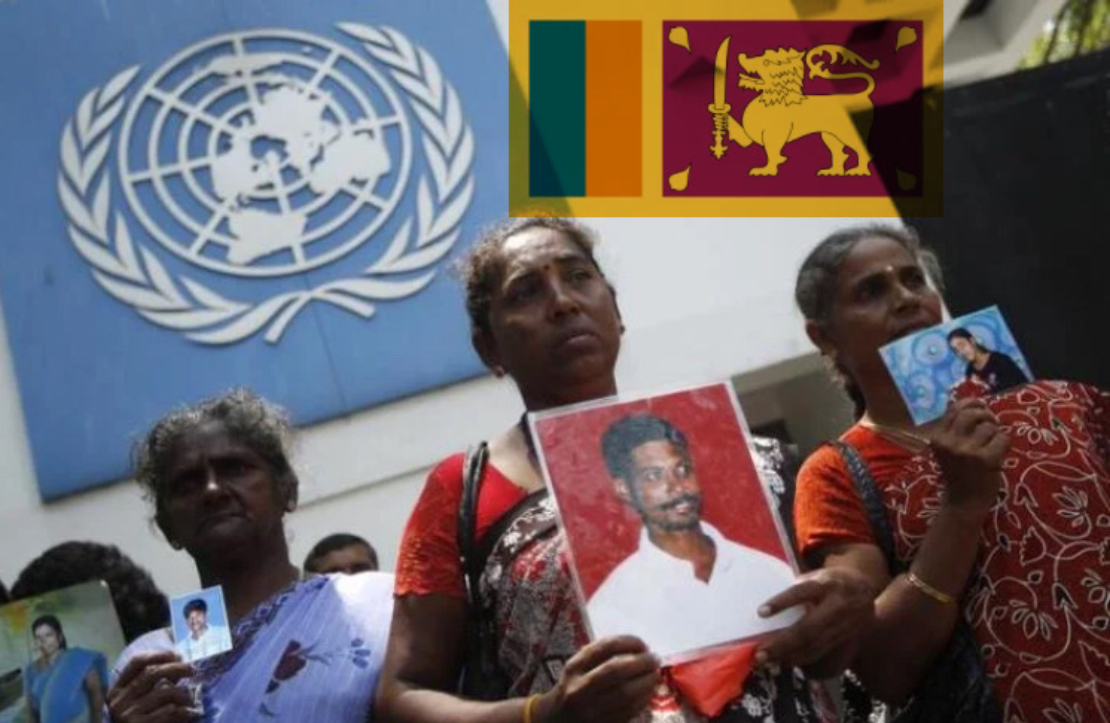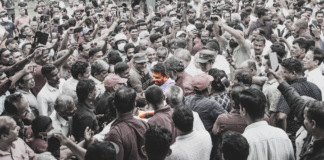September will be a busy month for foreign ministry mandarins as the country gears to face the 48th sessions of the United Nations Human Rights Council (UNHRC) in Geneva. They will kick off on 13 September and go on till 8 October. At these sessions, the progress or otherwise made by Sri Lanka on the recommendations and proposals of the last Resolution will be reviewed through an oral update. The last resolution, HRC 46/1 which was on the Promotion of Reconciliation, Accountability and Human Rights in Sri Lanka,was adopted at the 46th sessions on 23 March this year. According to unconfirmed information by a source, a delegation from Sri Lanka is likely to be physically present at the sessions which are expected to be low key. Details of who will be in the Sri Lankan delegation are still unknown. Meanwhile the announcement that President Gotabaya Rajapakse will be addressing the United Nations General Assembly sessions later in the month came early. It is rumoured he will tie up the visit to New York to spend time with his family who live in the US.
As a prelude to the UNHRC sessions, the government dispatched a briefing note dated 8 August to diplomatic missions on the progress that has been made in the areas of human rights and reconciliation. In the eyes of the government although there has been progress in many areas including returning land that was held by the military, the conduct of democratic elections and the appointment of presidential commissions to make recommendations on accountability and missing persons there are also post conflict residual areas that remain to be addressed. These include locating missing persons, paying compensation and making reparations and continuing with action on accountability and reconciliation.
Among the areas the government elaborated on in its briefing note is the work of the Office on Missing Persons (OMP), one of four transitional justice mechanisms Sri Lanka committed to set up in a past Resolution. The work of the OMP has been barely heard of following the resignation of its former chairman Saliya Peiris. Since December 2020 it has been headed by presidential appointee retired Supreme Court justice Upali Abeyratne who was also the chairman of the Presidential Commission on Political Victimisation whose regressive recommendations have been slated. According to the briefing note, the OMP caseload has been whittled down to 14, 988 from 21, 374 complaints initially. Making up the deficit are3742 cases of security forces who went missing in action and 2644 cases which are either double or duplicate cases, or those who are missing from natural disasters, eloping and mental disorders, all of which fall outside the scope of the OMP Act. Eleven investigation officers are being recruited to verify the remaining cases and the work will be done in three phases. Thefirst phase of the process will look at missing cases between 2000-2021, the second phase at cases between 1981-1999 and the third phase will look at missing cases pre– 1980.
The government’s solution for the thorny issue of accountability is a domestic mechanism. It appointed the Commission of Inquiry to Investigate and Inquire into the Findings and Recommendations of Preceding Commissions and Committees. These commissions looked into serious human rights violations of international humanitarian law and other serious offences. Judge Nawaz who is heading the Commission of Inquiry handed over its interim report to the President on 21 July. The final report is expected by January 2022. This Commission is mandated to review the recommendations of those preceding it like the Lessons Learnt and Reconciliation Commission and the Paranagama Commission. In the briefing note the government says it is committed to implementing the recommendations on accountability which this Commission makes.
Meanwhile Jaffna district MP CV Wigneswaran,writing an interim letter of rebuttal to the Human Rights Commissioner on some of the points raised in the briefing note, is pushing for an external mechanism. His position arises from the lack of neutrality and independence in domestic mechanisms as evidenced in cases from the past.
In the letter Mr Wigneswaran, who is also the leader of the Thamizh Makkal Koottani, puts thenumber of missing persons at between 70, 00 and 146, 000 and raises the question of neutrality of the officers in the OMP.
According to him there has been a deterioration in the country’s human rights since the fighting ended in 2009 with the government’s response to the country’s issues based on the premise that the problem is an economic and not an ethnic one.
He points out that ‘the rights of Tamil and Muslim people have not been upheld since Sri Lanka’s victory in the war’. Infact he says that the human rights violations against Tamil and Muslim people in the North and East have actually increased in the post-war period with violence against Muslims worsening since 2009and a continuation of the discrimination and repression. Even in the case of land grab state institutions have expropriated more than 100, 000 acres of land since 2009.
The letter from the Tamil National Peoples’Front (TNPF), signed by its president Gajendrakumar Ponnambalam, berates the Heads of Missions in Geneva of the Core Group on Sri Lanka for not involving the UN Security Council (UNSC), International Criminal Court(ICC) and UNGA triumvirate to nail Sri Lanka down for its alleged human rights excesses. Before the adoption of Resolution 46/1, the TNPF wrote to the High Commissioner with a request to move the UNSC and ICC because ‘it, in itself, would bring attention and urgency to Sri Lanka’s chronic evasion of accountability’. Although there is provision for proceedings at the UNHRC to be brought before the UNGA itwill be near impossible to get Security Council approval for a referral to the ICC which will require unanimity among its five permanent members and two of whom, Russia and China, are close allies of the Sri Lankan government. Nevertheless, the TNPF reiterates this call once again.
The other political party which wrote to the High Commissioner is the Tamil National Alliance (TNA). Wracked by internal strife, some of its constituent parties like the Tamil Eelam Liberation Organisation had broken ranks and written separately to the High Commissioner, a move which had angered the TNA hierarchy. It is yet unclear what weight these letters will be given externally.
The TNA’s letter to the High Commissioner rests largely on Sri Lanka’s failure to meet its commitments to address transitional justice, human rights and accountability when the government co– sponsored Resolution 30/1 six years ago.
According to an implementation status monitor done by Verite Research, a think tank on law, media and economics, of the 36 commitments that were made only seven have been fulfilled. The commitments fall under the bigger umbrella of transitional justice and reconciliation, rights and rule of law, security and demilitarization, power sharing and international engagement.
The commitments that have been fulfilled are the broad national consultations on transitional justice processes, establishing the OMP and Office for Reparations, signing and ratifying the International Convention for the Protection of All Persons from Enforced Disappearances, criminalizing enforced disappearances, continuing engagement between the government of Sri Lanka and the Office of the High Commissioner for Human Rights and evidence of cooperation between the government and special procedure mandate holders. Seven commitments that remain partially fulfilled include the review of the witness and victim protection law and the issuing Certificates of Absence to families of missing persons.
Most commitments such as restoring normality to civilian life, investigating attacks on journalists, human rights defenders, religious minorities and civil society, holding perpetrators of these attacks to account and preventing such attacks in the future remain at a level of poor progress. Some commitments in this category such as ending military involvement in civilian affairs are at the risk of reversal because of the leadership which is being given by the military in presidential task forces and the appointment of retired military officials to civilian and diplomatic posts.
Areas where there has been no progress are commitments made to set up an accountability mechanism to investigate violations of human rights and international humanitarian law which have been stagnant since February 2018 and thereview of the Public Security Ordinance which has seen no forward movement since 2015. The methodology Verite used for the monitor was an assessment of performance indicators and an assessment of implementation plans.
Click on links to read the full briefing note the government set to diplomatic missions, and the letters the TNA, TNPF and MP CV Wigneswaran wrote to the Human Rights High Commissioner.(SW)





